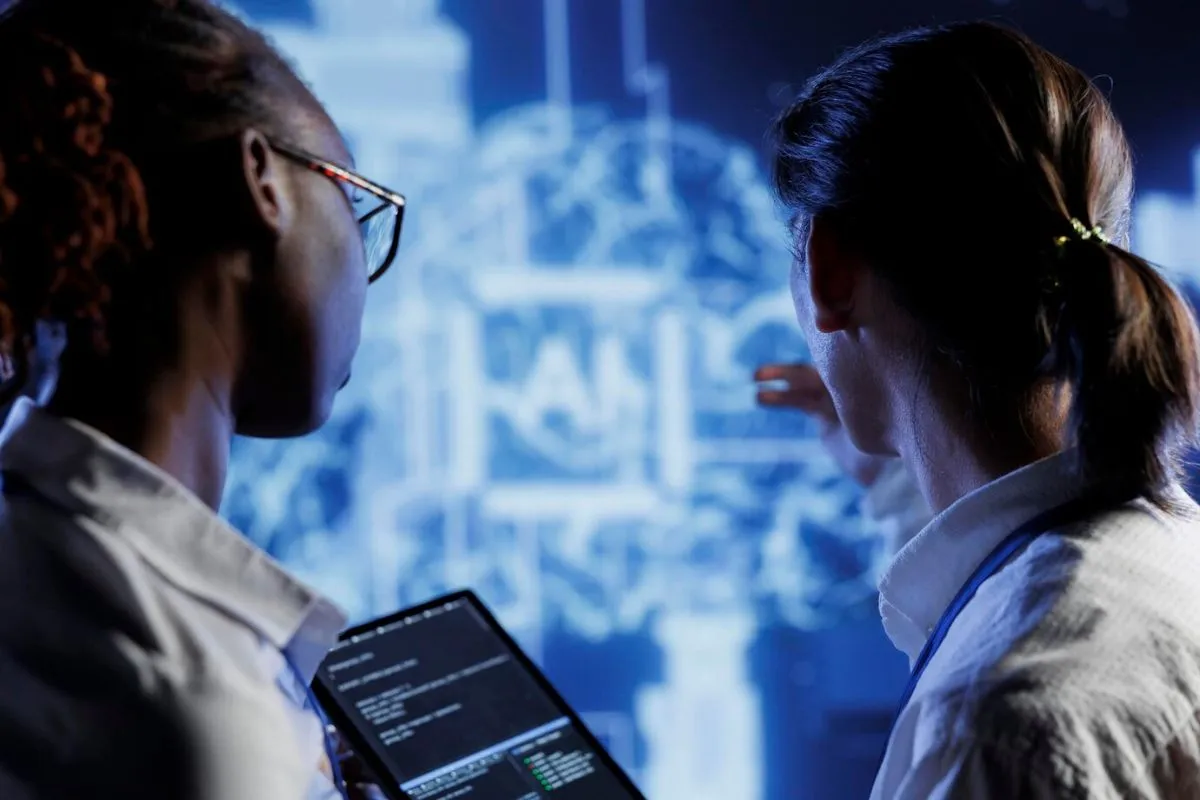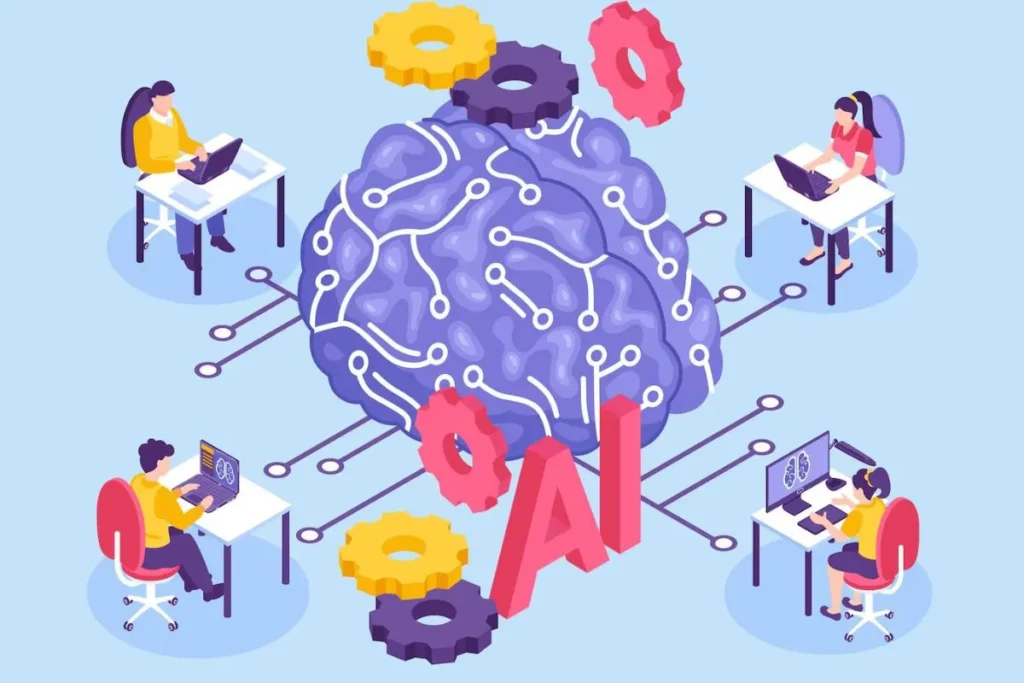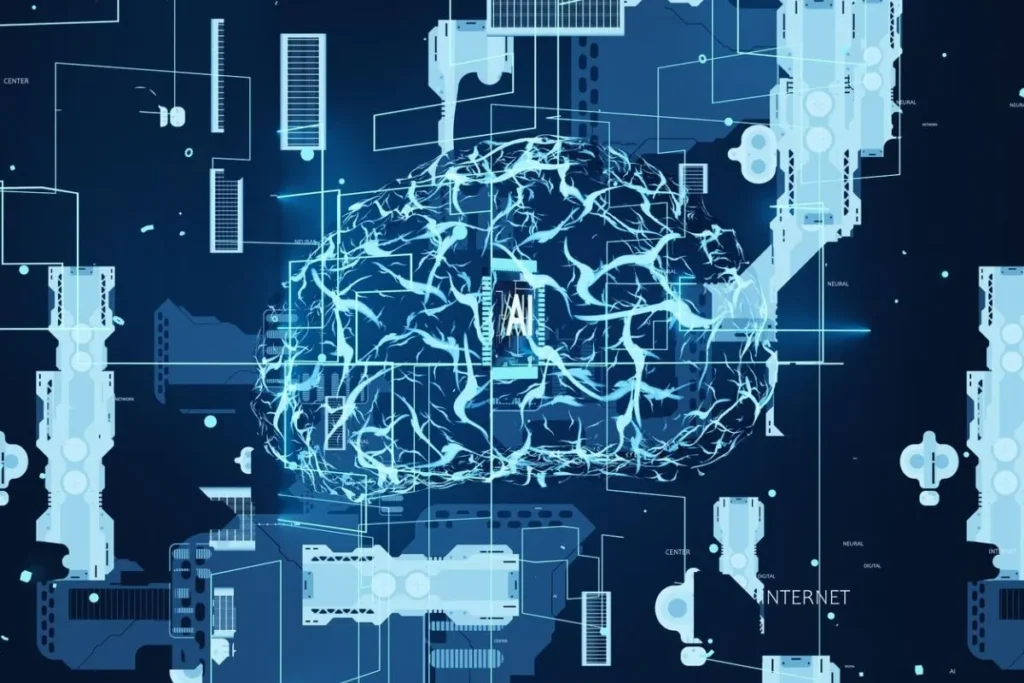AI-Driven Cognitive Enhancement in Education is transforming the traditional learning environment.
The potential of AI extends from assisting teachers to personalizing student learning experiences.
Leveraging AI can lead to innovative methodologies and improved cognitive skills among students.
The Role of AI in Education
Artificial Intelligence (AI) is revolutionizing education by providing personalized learning paths.
With AI, educational content can be tailored to meet individual student needs, enhancing engagement.
This technology can also automate administrative tasks, freeing up time for teachers.
Personalized Learning
AI allows for a more tailored approach to education. It can adapt learning materials to fit student needs.
This can lead to improved cognitive skills, making learning more efficient and effective.
Personalized learning helps identify areas where students struggle and provide targeted support.
Intelligent Tutoring Systems
Intelligent Tutoring Systems (ITS) use AI to provide real-time feedback and assistance to students.
These systems enhance learning by adapting to the student’s level, similar to a human tutor.
ITS can be especially beneficial in subjects like mathematics and science, where step-by-step problem-solving is crucial.
Revolutionizing Classroom Management
AI-driven tools can help teachers manage classrooms more effectively. They can analyze data to understand students’ needs.
This leads to more informed decisions and strategies to enhance teaching methodologies.
Classroom management becomes smoother, contributing to a better learning environment.
Enhancing Cognitive Skills
AI-driven cognitive enhancement focuses on improving students’ memory retention, problem-solving, and critical thinking skills.
By tailoring educational content to individual learning styles and needs, AI can significantly enhance the effectiveness of learning. This personalized approach ensures that each student receives the support they need to excel.
This approach utilizes AI algorithms to customize learning experiences. These algorithms analyze students’ performance and adjust the difficulty and type of content in real-time.
This continuous adaptation helps maintain an optimal learning pace, preventing frustration and boredom. Additionally, AI can identify specific areas where students struggle and provide targeted interventions.
Through AI, students are exposed to diverse learning materials that challenge and build their cognitive abilities. Interactive simulations, multimedia content, and adaptive quizzes are just a few examples of how AI can enrich the learning experience.
This variety keeps students engaged and promotes deeper understanding. Moreover, AI can introduce real-world scenarios to apply theoretical knowledge, enhancing practical skills.
Furthermore, AI-driven platforms can facilitate collaborative learning by connecting students with peers who have complementary skills and knowledge. This collaboration fosters a deeper understanding of the material and encourages the development of communication and teamwork skills.
As AI continues to evolve, its role in cognitive enhancement will undoubtedly expand, offering even more sophisticated tools and methods to support student success.
Memory Retention
AI can enhance memory retention by using spaced repetition algorithms.
This technique ensures that information is reviewed at optimal intervals for long-term retention.
As a result, students retain more information over time.
Problem-Solving Skills
AI-driven learning tools often incorporate problem-solving exercises in various formats.
These exercises can be dynamically adjusted based on the student’s performance levels.
This helps improve problem-solving skills and cognitive flexibility.
Critical Thinking
By presenting complex scenarios and requiring students to evaluate multiple solutions, AI promotes critical thinking.
Students learn to analyze and synthesize information, honing their decision-making skills.
These exercises are essential for cognitive development and future academic success.
Innovative Teaching Methodologies
AI-driven cognitive enhancement in education is leading to the creation of innovative teaching methodologies. These methodologies focus on engaging students and improving learning efficiency by leveraging AI to tailor educational content to individual needs.
Personalized learning paths can address students’ strengths and weaknesses, making education more effective and enjoyable.
These methodologies focus on engaging students and improving learning efficiency. By incorporating real-time feedback and adaptive learning techniques, students receive immediate support and guidance.
AI-driven tools can identify gaps in understanding and provide additional resources or alternative explanations, helping students grasp difficult concepts more easily.
From flipped classrooms to gamified learning, AI is reshaping how teachers teach. Flipped classrooms enable students to learn new material at home and apply it in the classroom, fostering active learning and collaboration.
Gamified learning introduces game elements into education, making learning more interactive and motivating for students. These approaches not only enhance student engagement but also encourage critical thinking and problem-solving skills.
Furthermore, AI can assist teachers in administrative tasks, allowing them to focus more on instructional time. By automating grading and providing insights into student performance, AI tools can help educators personalize their teaching strategies and improve overall classroom management.
The integration of AI in education promises a future where learning is more personalized, interactive, and effective.
Flipped Classrooms
In a flipped classroom model, students are introduced to course content at home through AI-based platforms.
Class time is then used for interactive discussions and hands-on activities.
This approach maximizes the quality of teacher-student interactions and improves comprehension.
Gamified Learning
Gamification incorporates game design elements into educational activities.
AI can tailor these activities to the student’s proficiency, making learning more engaging and fun.
This method enhances motivation and foster a positive attitude towards learning.
Adaptive Learning Platforms
AI-driven adaptive learning platforms adjust the difficulty of tasks based on student performance.
This ensures that each student is challenged appropriately, promoting steady cognitive development.
Such platforms facilitate a more personalized and effective learning experience.
The Future of AI-Driven Cognitive Enhancement in Education
Emerging trends suggest that AI will continue to play a significant role in education. As technology evolves, AI-driven tools are expected to become even more integral in classrooms and remote learning environments, providing personalized educational experiences.
These tools can cater to individual learning styles, making education more inclusive and effective.
Future advancements may include more sophisticated ITS and predictive analytics for student performance. Intelligent Tutoring Systems (ITS) will offer tailored feedback and support, adapting in real-time to students’ needs.
Predictive analytics can identify at-risk students early, enabling timely interventions to improve outcomes. These technologies can also streamline administrative tasks, giving educators more time to focus on teaching.
These innovations will further enhance cognitive development and education quality. By providing customized learning paths and resources, AI can help students achieve their full potential.
Additionally, these tools can facilitate collaborative learning and critical thinking, preparing students for the complexities of the modern world. As AI continues to integrate into education, it promises to foster a more dynamic and engaging learning environment.
Moreover, continuous data collection and analysis will enable ongoing improvements in educational strategies and policies. This feedback loop will help educators refine their approaches, ensuring that educational practices evolve alongside technological advancements.
The synergy between AI and education will ultimately lead to a more adaptive and responsive educational system.
Sophisticated Intelligent Tutoring Systems
Future ITS models may become more complex, offering even finer-grained feedback.
This could include emotional and psychological support, enhancing the educational experience.
More sophisticated ITS can lead to holistic cognitive development among students.
Predictive Analytics
With AI-driven predictive analytics, educators can foresee potential academic challenges early.
This allows for timely interventions, preventing students from falling behind.
Such predictive tools can be crucial for maintaining high educational standards.
Enhanced Collaboration Tools
AI can facilitate better collaboration among students through advanced communication platforms.
These tools can include real-time feedback and collaborative problem-solving tasks.
Enhanced collaboration fosters a more interactive and enriching learning environment.
Conclusion: Embrace the Change
AI-Driven Cognitive Enhancement in Education is a revolutionizing force in the educational landscape.
The potential to personalize learning, enhance cognitive skills, and innovate teaching methodologies is immense.
As AI technology continues to evolve, its integration into education will only deepen, leading to continual improvements.
Educators, students, and stakeholders need to embrace this change to harness its full potential.
The future of education is promising with AI-driven enhancements making learning more dynamic and effective.
Explore AI tools for education, and pave the way for a brighter academic future.
Perguntas Frequentes
What is AI-driven cognitive enhancement in education?
AI-driven cognitive enhancement in education refers to the use of AI technologies to improve learning outcomes and develop cognitive skills among students.
How can AI personalize learning?
AI personalizes learning by adapting educational content and methodologies based on individual student performance and needs.
What are Intelligent Tutoring Systems (ITS)?
Intelligent Tutoring Systems are AI-powered platforms that provide real-time feedback and personalized guidance to students, much like a human tutor would.
How does AI improve memory retention?
AI improves memory retention by using algorithms such as spaced repetition, ensuring information is reviewed at optimal intervals for better long-term retention.
What future advancements in AI-driven education can we expect?
Future advancements may include more sophisticated ITS, predictive analytics for early identification of academic challenges, and enhanced collaboration tools.




